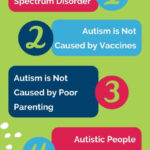Navigating the journey of raising a child with autism can be challenging, particularly when they face bullying or discrimination. This article provides insightful strategies on how to safeguard your child against such harmful experiences. Understand how to educate others about autism, advocate for your child’s rights, and instill resilience within them to combat bullying. Discover the tools you need to create a safer, more inclusive environment for your child with autism.
Understanding the Nature of Bullying and Discrimination Towards Children with Autism

Understanding the nature of bullying and discrimination towards children with autism is crucial for parents seeking to safeguard their child’s well-being. Children with autism often become targets due to their unique behavioral patterns and social interaction difficulties. Such differences can unfortunately make them easy prey for bullies. In a society that often values sameness, these children face discrimination both subtly and overtly. Recognizing this, parents can begin to equip themselves with the knowledge and tools to effectively counter such negative experiences. This understanding forms the foundation for creating an inclusive environment, promoting acceptance, and implementing proactive strategies against bullying and discrimination.
Strategies for Handling Bullying Against Your Autistic Child: A Comprehensive Guide

Strategically tackling bullying against your autistic child involves a multi-faceted approach. Empowering your child with self-confidence, teaching them how to react, and encouraging open communication can curb such incidents. It’s equally important to involve school authorities, ensuring they’re aware and addressing the issue. We’ll delve into these strategies, providing a comprehensive guide for parents and caregivers on how to effectively manage bullying and discrimination against children with autism. This guide aims to help parents create a safe, supportive, and inclusive environment for their child, fostering their growth and development.
Empowering Your Autistic Child: How to Build Resilience Against Discrimination

Empowering your autistic child to build resilience against discrimination is crucial. Boost their confidence by focusing on their strengths, not just the challenges they face due to their autism. Encourage them to develop social skills and engage in activities they enjoy, fostering a sense of belonging and self-esteem. Also, make sure they understand what discrimination is and that it’s not their fault. Open discussions about their experiences and feelings can help them cope better. Teaching them self-advocacy skills can equip them to stand up for themselves, promoting resilience. Remember, a strong, confident child is less likely to be a target for bullies and discrimination.
Communication Tips: Discussing Bullying and Discrimination with Your Autistic Child

Effective communication is crucial when discussing sensitive topics like bullying and discrimination with your autistic child. Use simple, clear language to make sure they understand the situation, and reassure them that it’s not their fault. Encourage your child to share their feelings and experiences, making sure to validate their emotions. It can be beneficial to use social stories or visual aids, which can help autistic children comprehend complex social issues. Regularly discussing these topics can build trust and boost your child’s confidence, empowering them to speak up against bullying and discrimination. Remember, every child is unique, so tailor your approach to their needs and abilities.
Legal Rights and School Policies: Protecting Your Autistic Child from Bullying and Discrimination.
![]()
Understanding your child’s legal rights and the school’s anti-bullying policies is crucial in protecting them from discrimination and bullying. If your child has autism, they are safeguarded by laws such as the Americans with Disabilities Act (ADA) and the Individuals with Disabilities Education Act (IDEA). These laws ensure that schools provide appropriate services and maintain a safe learning environment for your child. It’s important to familiarize yourself with these laws and the school’s policies on bullying, as knowledge is the first step towards advocacy. Additionally, ensure that the school’s implementation of these policies aligns with your child’s needs and safety.




